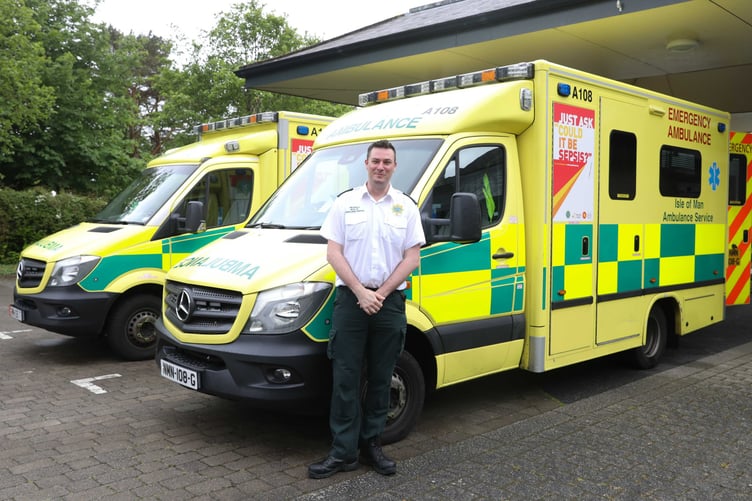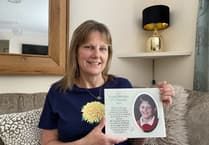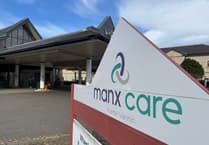The ambulance service will be putting extra staff into the emergency services joint control room to reduce the number of ambulances being called out unnecessarily.
The clinicians, who will be registered healthcare professionals such as nurses or paramedics, will further triage people over the phone to determine if they need an ambulance or can be signposted elsewhere for treatment.
Head of the ambulance service (IMAS) Will Bellamy says it gets around 13,000 calls every year, which increases by around 6% annually.
Receiving about 50 calls per day, the IMAS can sometimes be called to incidents that don’t require an ambulance.
‘Our 999 calls are taken by our colleagues in DHA, they go through a triage system and then they are prioritised from category one, which is unconscious, not breathing, through to category five, which is what we would refer to as “hear and treats” which a clinician should be able to resolve by making alternative plans or helping the individual navigate the health systems,’ Mr Bellamy said. ‘One hundred per cent of the time a 999 call is made an ambulance is provided.
‘We’re now looking to see if we can do something better for the patient. Can we help them resolve their issues over the phone? Can we signpost them to the most appropriate services?
‘Patients don’t make bad decisions, they just don’t know any better.
‘I want to make sure that where healthcare can be confusing or there’s no availability, we are eliminating that. Despite heavy communications being put out, it still happens.
help
‘All individuals like to use a brand that we know and trust and the 999 system is a freephone number and you will get people to give you some help.
‘There should be a clinician who is able to pick up their call for help and assistance and help them navigate all of the available options and there’s loads of them on the island which suits their needs.’
When a call is triaged, an ambulance will be dispatched immediately if there is an immediate threat to life or limb.
However, for all other calls, clinical navigators will make contact with appropriate patients who have called 999 and conduct a further clinical assessment of their needs.
They may still decide that an ambulance should be sent and will dispatch one, or they may signpost callers to one of the other healthcare services provided by Manx Care which is more appropriate for their needs, for example the Minor Injuries Unit (MIU) at Ramsey and District Cottage Hospital.
Mr Bellamy said that this won’t affect response times, adding: ‘There will be a very small set of questions they will ask, so one of the protocols is called “sick person” to find out if it’s breathing problems, chest pain, a stroke and it will just ask five blunt questions to make sure you don’t hit any priority symptoms.
‘They will take those details and then that transfers to the clinician to have that high level clinical discussion. What we’ve built behind that is an electronic clinical record.
‘If we say you need to speak to your GP we can send that electronically to their GP or across to MEDS.
‘If you phone up and we discover you do need an ambulance you won’t go anywhere near the clinician, the normal procedure will still follow.
‘It’s for the growing number of patients who have got less urgent problems, so instead of sending two people in an ambulance, we will talk to you first to see what we can do.’
High numbers of unnecessary call outs can result in delays in IMAS responding to calls for patients with a high clinical need, increases the ambulance workload, and results in a high conveyance rate to the emergency department at Noble’s Hospital.
Average ambulance to hospital conveyance rates are 50% in the UK, whereas here these are currently around 75 to 80%.



.jpeg?width=209&height=140&crop=209:145,smart&quality=75)

Comments
This article has no comments yet. Be the first to leave a comment.